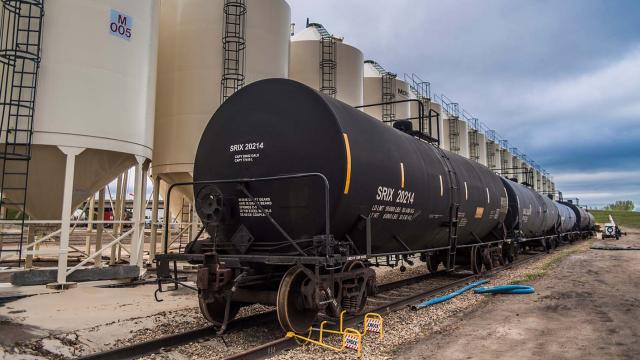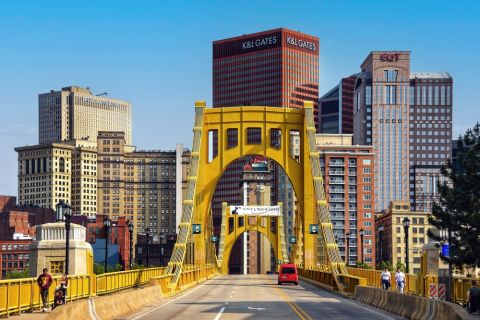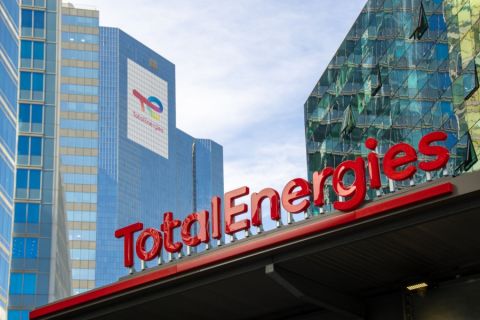
If the Dakota Access Pipeline is shut down for a significant length of time, transporting crude oil by rail in the Bakken will grow. (Source: Video Arts Studios/Shutterstock.com)
North Dakota oil producers face new pressures to delay bringing back more of their recently curbed output after a U.S. court ruling this month put in jeopardy the pipeline that transports most of the region’s oil, executives and analysts said.
Oil producers in the Bakken, the second-largest U.S. shale field, cut May output by about 500,000 barrels per day (bbl/d) after U.S. prices tumbled in March on the heels of global coronavirus shutdowns.
They were slowly restarting some wells when the court ruled the region’s main pipeline must face a new environmental review that could halt its operation for a year.
An appeals court has allowed Energy Transfer LP’s Dakota Access Pipeline (DAPL) to continue operating for now, but the threat of closure makes reversing cutbacks and drilling new wells too risky, executives and analysts say.
DAPL links Bakken producers to Midwest and Gulf of Mexico customers, accounting for about 40% of volumes transported to those regions. Rail transport, which is $3 to $6 a barrel more expensive, is expected to expand if the pipeline closes.
Producers will not be willing to commit to reopening closed wells or drilling news ones “unless they know more” on the pipeline’s future, said Nicholas O’Grady, CEO at Northern Oil and Gas Inc., which has invested in about 7,000 wells in North Dakota’s Williston Basin.
Northern Oil and Gas has already factored the impact of a DAPL shutdown into its plans for spending on new wells and acquisitions in the region, he said.
Among the top Bakken crude oil producers, Continental Resources Inc. did not respond to a request for comment, while Marathon Oil Corp. and Hess Corp. declined to comment.
Nationally, U.S. shale producers have revived as much as half of the production they cut in May. In the Bakken, only a fifth of 510,000 bbl/d cut were back on line last month, according to North Dakota state figures.
The current per barrel price of $40.14 is below the $46.54 that Deutsche Bank analysts estimate Bakken producers need to break even on new wells even before the additional rail costs are factored in.
There were about 882 drilled but uncompleted wells in Bakken in June, according to the U.S. Energy Information Agency, and about 405,000 bbl/d of output was shut-in as of June 26.
Recommended Reading
Deep Well Services, CNX Launch JV AutoSep Technologies
2024-04-25 - AutoSep Technologies, a joint venture between Deep Well Services and CNX Resources, will provide automated conventional flowback operations to the oil and gas industry.
EQT Sees Clear Path to $5B in Potential Divestments
2024-04-24 - EQT Corp. executives said that an April deal with Equinor has been a catalyst for talks with potential buyers as the company looks to shed debt for its Equitrans Midstream acquisition.
Matador Hoards Dry Powder for Potential M&A, Adds Delaware Acreage
2024-04-24 - Delaware-focused E&P Matador Resources is growing oil production, expanding midstream capacity, keeping debt low and hunting for M&A opportunities.
TotalEnergies, Vanguard Renewables Form RNG JV in US
2024-04-24 - Total Energies and Vanguard Renewable’s equally owned joint venture initially aims to advance 10 RNG projects into construction during the next 12 months.
Ithaca Energy to Buy Eni's UK Assets in $938MM North Sea Deal
2024-04-23 - Eni, one of Italy's biggest energy companies, will transfer its U.K. business in exchange for 38.5% of Ithaca's share capital, while the existing Ithaca Energy shareholders will own the remaining 61.5% of the combined group.




